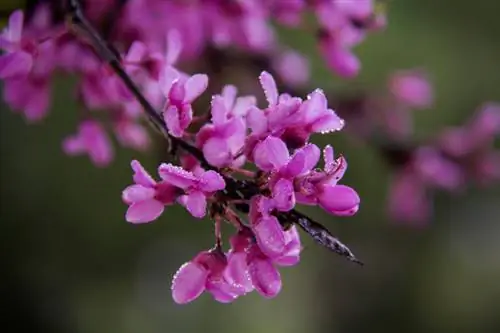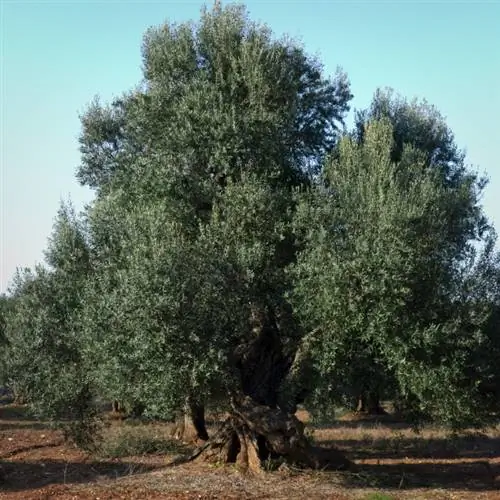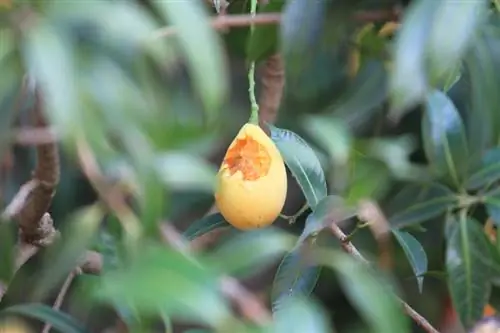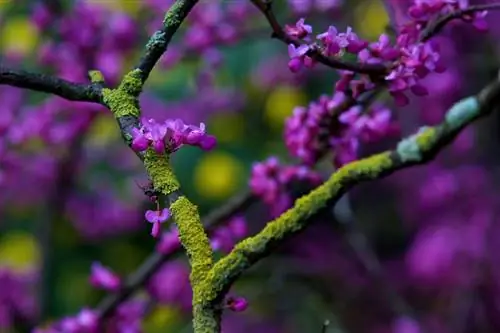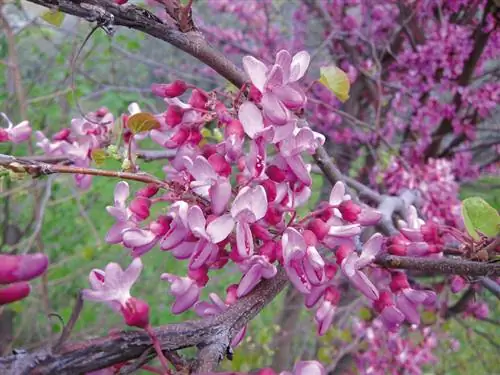- Author admin [email protected].
- Public 2023-12-16 16:46.
- Last modified 2025-01-23 11:20.
Judas trees (Cercis) - many lovers also refer to the trees or bushes, which grow up to six meters or larger, as love or heart trees because of the shape of their leaves - they are real gems. In spring, the plants show lush, mostly pink or white flowers, which - in contrast to many other flowering trees - also sprout from the old wood and the trunk. In autumn, the Judas tree impresses with its distinctive autumn colors. However, the Judas tree is not winter or even frost hardy, even if some sellers may claim this.
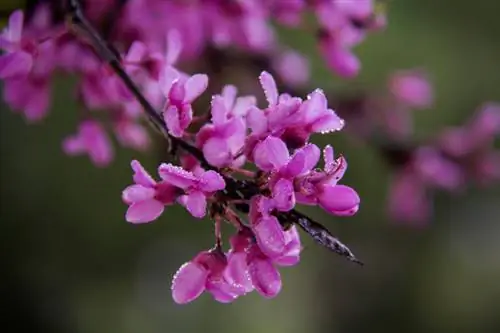
Is the Judas tree hardy?
The Judas tree is not completely hardy; its frost tolerance varies depending on the species and variety. Young plants need winter protection, while older specimens are less sensitive. Measures to combat cold include choosing a location, protecting trunks and covering roots.
Winter hardiness depends on species and variety
The Judas tree is supposed to be absolutely frost-hardy or winter-hardy, at least that's what many garden and plant shops claim, and even by employees themselves. However, experience shows that, on the one hand, sensitivity to frosty temperatures depends on the type and variety of Judas tree and, on the other hand, no Judas tree is really hardy. Younger specimens in particular need good winter protection, as they only become relatively insensitive as they get older. In addition, Judas trees that are advertised as hardy (e.g. the “Forest Pansy” variety) are not suitable for planting in extremely cold regions.
Choosing a suitable location
However, you can mitigate the effects of a cold winter by choosing a suitable location. Plant the Judas tree in a sunny, wind-protected and warm location that should, if possible, face south and be close to a house wall. A partially shaded, drafty place, on the other hand, is not particularly suitable for a solitaire.
Protecting Judas tree in winter
If there is a threat of low temperatures of minus 10 degrees Celsius and more, you should protect your Judas tree, for example by wrapping the trunk and crown with raffia mats (€18.00 at Amazon) or jute. The root area can be covered thickly with leaves and/or brushwood to protect the shallow roots. The only thing you shouldn't use is bark mulch as it acidifies the soil.
Overwinter Judas tree in a pot frost-free
Basically, potted specimens are much more sensitive to frost than planted Judas trees. Therefore, you should either pack Judas trees grown in pots well and place the pot on a base made of wood or Styrofoam (in warmer climates) or, if you live in an area with harsh winters, overwinter them frost-free at a maximum of 10 degrees Celsius.
Tip
Especially in spring, you should pay attention to late frosts and cover the crown overnight, otherwise the buds and flowers could freeze.

